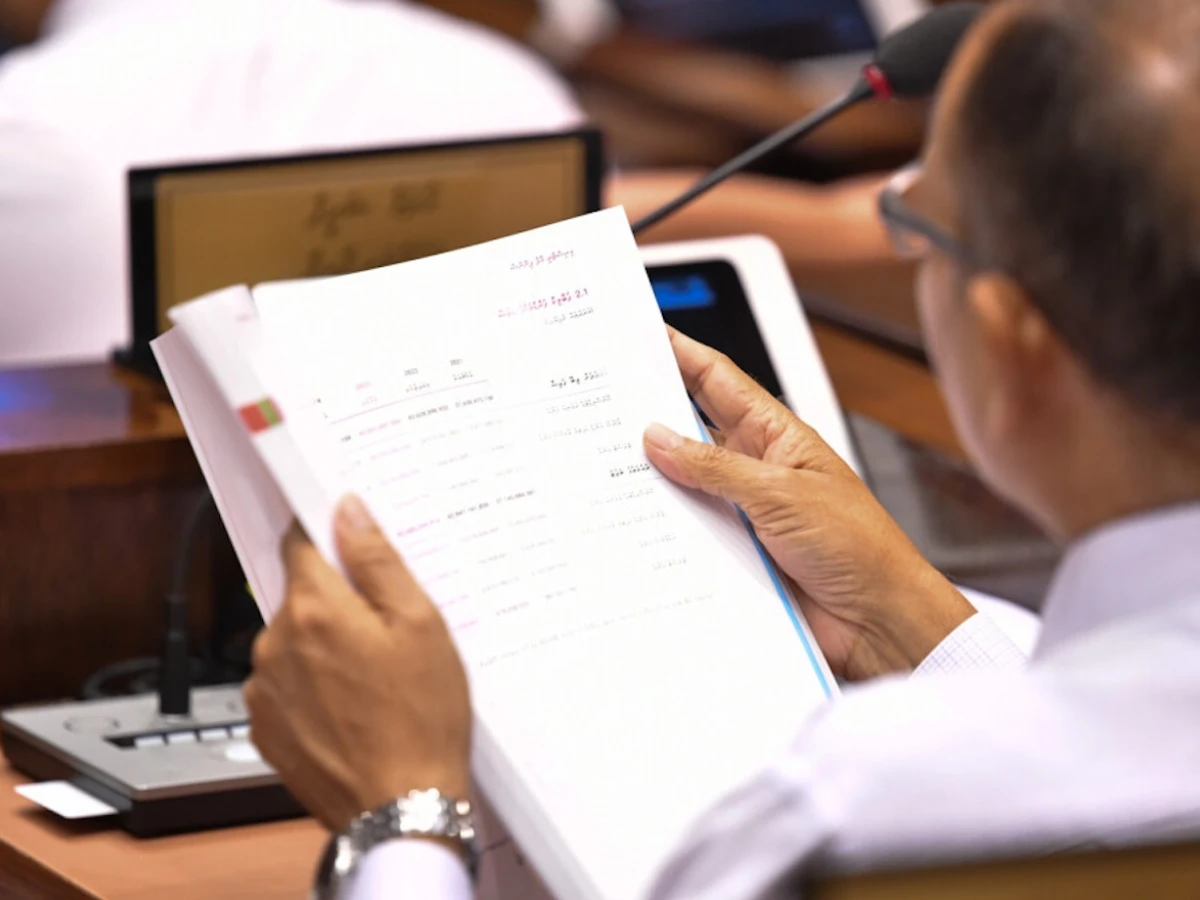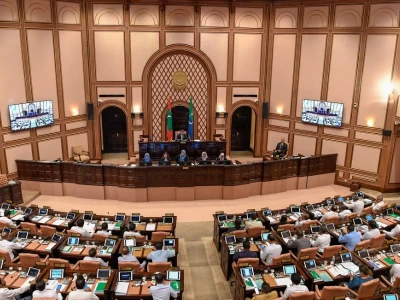
Privatisation of state companies put on hold
The budget shows that many companies have declared dividends but have not paid it.
Top Stories
-
MP Mauroof released from custody, receiving hospital treatment
-
House floor sinks in Malé during nearby construction work
-
PNF to hold special rally at Artificial Beach on Wednesday
-
MDP MP says Mauroof arrest may breach parliamentary privileges
-
Complaint filed with JSC over judge’s remarks on defence lawyer
By
Ahmed Naif
Privatisation of State-Owned Enterprises (SOEs) has been put on hold for the time being due to the ongoing global economic recession, with MVR 734 million allocated in the state budget for 2023 to fund state-owned companies.
In the budget approved for 2022, MVR 771 million is expected to be raised as revenue by privatising state-owned companies. The revenue is expected to come from privatisation of some state-owned companies or selling shares to private parties.
But the government's plans have changed, according to the 2023 budget presented to the parliament on Monday.
-
In the 2023 budget, there will be no revenue from privatisation
-
Instead, MVR 734 million has been earmarked for capital allocation to 16 state-owned companies
-
That is1.4% of the total budgetary allocation
When questioned, finance minister Ibrahim Ameer said the government had decided to put the privatisation policy on hold. As reasons, he said:
-
Willingness to buy shares is low as the global economy is slowing at the moment
-
If it is being privatised now, it may have to be done at throwaway prices
-
Most of the state-owned companies are important establishments providing basic services and privatisation has to be done in a well-thought-out manner.
Funds to be released to companies as capital in 2023:
-
1-
Hajj Corporation - MVR 3 million
-
2-
Sports Corporation - MVR 5 million
-
3-
MITDC - MVR 3 million
-
4-
BCC - MVR 12 million
-
5-
Kadhdhoo Airport - MVR 18 million
-
6-
Fund Management Corporation - MVR 19.6 million
-
7-
Ocean Connect - MVR 3 million
-
8-
AgroNet - MVR 80 million
-
9-
WAMCO - MVR 50 million
-
10-
SDFC (SME Bank) – MVR 250 million
-
11-
Addu Airport Company - MVR 44.9 million
-
12-
Fahi Dhiriulhun Corporation - MVR 26 million
-
13-
STELCO - MVR 100 million
-
14-
TradeNet Corporation - MVR 9.5 lakh million
-
15-
Regional Airports - MVR 100 million
-
16-
Maldives Post – MVR 100 million
In addition to the capital allocated to companies, MVR 180 million has been budgeted for Fenaka as water and sewerage subsidy and MVR 250 million for MIFCO to buy fish at prices above market prices. That is also an additional MVR 430 million.
SOEs weigh on finances
While MVR 868 million has been allocated for state-owned companies in this year's budget, according to the supplementary budget presented by the government to the parliament for the remainder of 2022, the amount of capital allocated to state-owned companies this year is likely to be MVR 2.1 billion. That is 4.1% of the total budget.
Such a huge amount was released as capital because of the deteriorating financial condition of HDC as the company could not sell bonds, according to the budget book. A total of MVR 1.1 billion has been released as capital to the company.
Due to the financial condition of the companies, the companies are unable to pay taxes and loans worth billions to the state. The number of sovereign guarantees issued to companies runs into billions, data showed:
-
Companies have been given MVR 2.8 billion from subsidy spending
-
Sovereign guarantees given to state-owned firms for loans stand at MVR 12 billion
-
State-owned firms fail to pay MVR 2.7 billion for taxes and loans
-
MVR 52.3 million has been disbursed as loans to state-owned companies this year
Many companies don't pay dividends
While state-owned companies are expected to earn dividends in the budget, the budget shows that many companies have declared dividends but have not paid it. According to the data:
-
This year, it was estimated that MVR 1 billion would be earned from dividends
-
However, only MVR 575 million was received
According to the budget, the dependence of state-run companies on the state is increasing day by day. This leads to higher budgetary borrowings than is approved every year.




